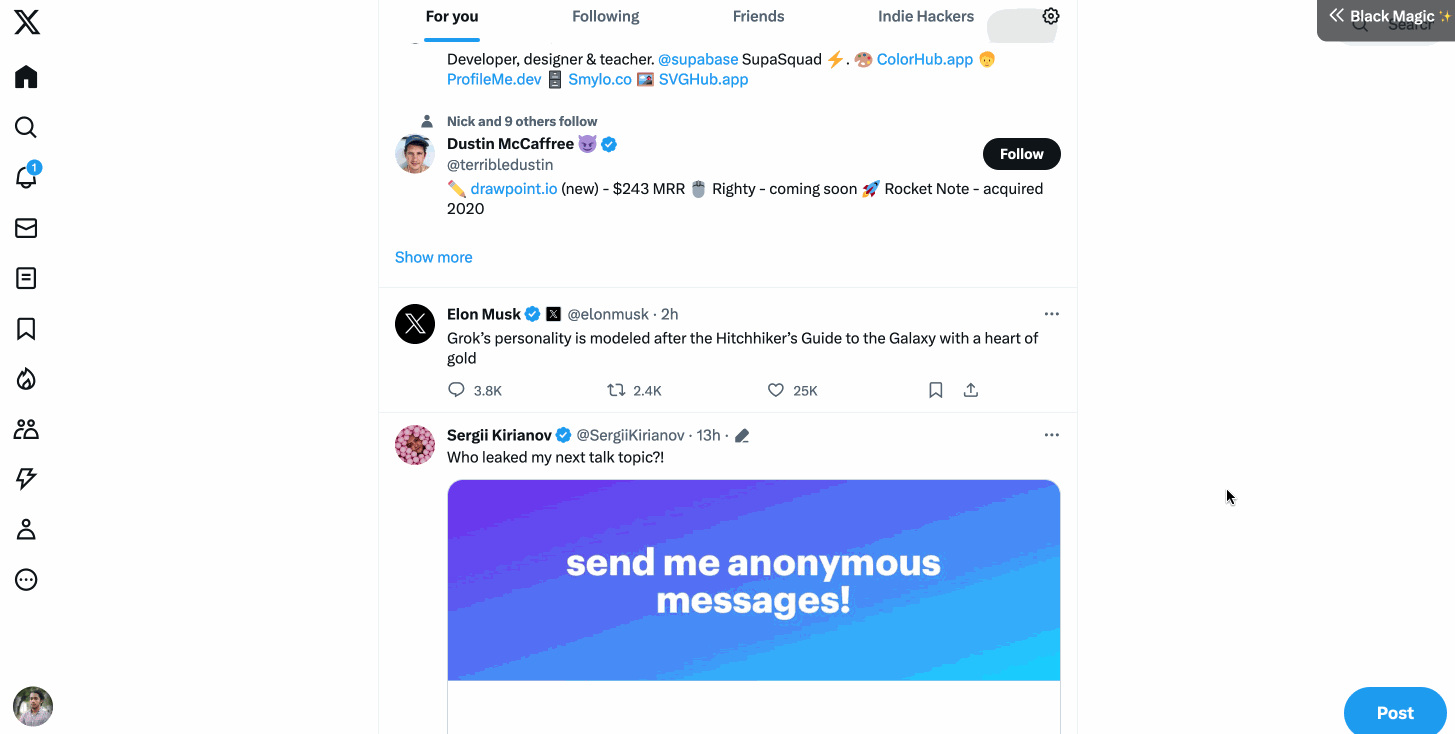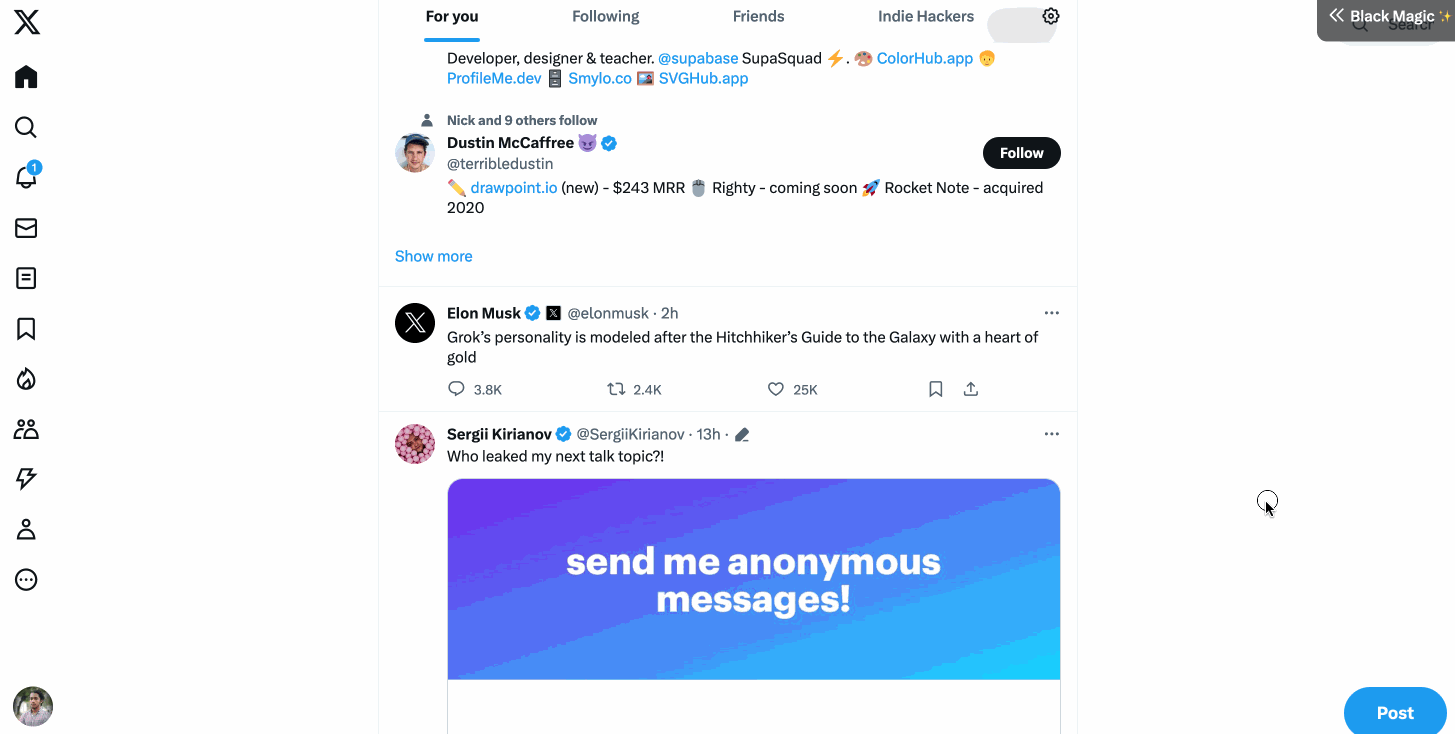Twitter is the best platform to find an audience and build a community around your brand and what you have to offer.
If you’re at all using Twitter already, you know about the ability to respond to someone else’s tweet. It’s a way to take part in a conversation, share your take on their opinion, and potentially make a friend!
Meanwhile, the retweet feature lets you share someone else’s tweet to your own feed, for your own followers to see. It’s a way to share what is interesting to you, and to show what you’re about and what you agree with. It’s also a way to interact with the original poster: you’re telling them that what they’re saying resonates with you.
But there’s a lot more you can do to interact with other users online and grow your engagement!
- Quote tweeting and replying: what’s the difference?
- The benefits of replying to a tweet
- How to reply to a tweet
- Ways to reply to tweets
- The benefits of quote tweeting
- How to quote tweet a tweet
- Ways of quote tweeting
Quote tweeting and replying: what’s the difference?

Both quote tweeting and replying are ways to interact with someone else’s tweet.
When you’re replying to a tweet, you’re adding your own tweet underneath the person’s original post. They’ll be able to see your response and may, in turn, reply to it to continue the conversation.
When you’re quote tweeting, you’re sharing someone’s tweet to your timeline but adding your own words to accompany it. You’re quoting their tweet and responding to what it’s saying.
These two approaches offer different benefits and can be used in different ways.
The benefits of replying to a tweet
Replying to a tweet is the most direct way to interact with what someone has posted on Twitter. You are directly responding to what they’re saying, and you’re aiming your comment to them. Other people may see your response if they follow you and the original poster, or if they click on the original tweet and check out the replies underneath it, but your main audience is the OP.
Replying therefore allows you to connect with the OP directly, which can help you build a relationship with them.
Since replies can be seen by other people too, your response may also catch the eye of the OP’s other followers, exposing your comment to even more people who may be interested in what you have to say and choose to check out your profile.
Directly replying is the most immediate, honest way to interact with someone you may want to have a relationship with.
How to reply to a tweet
To reply to a tweet, you can either click the comment icon and the editor will appear and you can start typing your reply right away.
Or the second way you can reply is by opening the tweet (clicking it) to view more and then you can see the editor right there and reply from there.
Both these ways work on both web client and mobile apps

Ways to reply to tweets
You can reply to tweets in different ways to achieve different results.
Show agreement
You can simply validate what the OP has said and demonstrate that you agree. Keep in mind that it’s a bit useless to simply reply “so true” or “I agree,” so try to add some details as to why you agree! For instance, if someone tweets “working hard when the heart’s not in it is actually dangerous for your productivity,” try offering some insight or personal experience, for instance “every essay I forced myself to finish writing at university made me more scared of the next essay I’d have to write”.
Ask questions
You can show that you’re genuinely curious about what someone has shared by asking them for more! It’s always nice to realize we have an engaged audience, especially on Twitter where so many tweets go ignored. For instance, if someone were to share the above mentioned tweet, you could ask them “yeah but then, how do you make sure the heart’s in it?”
Share something related
You can offer value to the OP to show that you care about what they have to say. If their tweet reminds you of a good article you read, or a song, or whatever else, you can send them that link as a reply with a little explanation. They will thank you for it!
Don’t be afraid to disagree
You won’t always agree with people on Twitter, even the ones that you actually like! And that’s perfectly okay. If you can show them that you think their argument doesn’t hold water while staying respectful, they may appreciate you all the more for it. Twitter was intended as a place for healthy discussion, and while it may not offer all the best features for that, it is still possible to discover other perspectives and learn something on there.
These are all ways in which you can use twitter replies to your advantage. Remember that respect and authenticity are always your most powerful tools when engaging with others online!
The benefits of quote tweeting
Quote tweeting, unlike regular replies, allows you to respond to someone’s tweet and have your response shared on your feed together with the original tweet, so that both the OP and your followers can see your response.
As such, quote tweeting is a less direct way to respond to someone’s tweet. You’re commenting on what they’ve said and doing so in front of your own audience, rather than just saying it to the OP.
Depending on how you do it, quote tweeting can bring you closer to the OP, for instance if you share their tweet with a positive message praising the tweet. Still, it is more intended at your audience than at the OP.
In that way, quote tweeting allows you to share your take on other people’s tweets and thus show your personality and opinion to your followers. It can help you become a source of authority in your niche as you share your angle openly with others.
For instance, in this quote tweet below, menswear Twitter user @dieworkwear quotes someone’s take on his own advice that buying a good, slightly more expensive pair of shoes is better than buying the cheap stuff. The person disagrees with him, and @dieworkwear quotes their tweet to answer their implied question: wouldn’t it be cheaper in the long run to buy better shoes? That way, he’s shown his many followers that he can take criticism and respond with genuine interest and curiosity, using his knowledge of menswear to back up his claims. He looks like a real pro!
Not a big believer in Vimes Boot Theory, which says that the poor pay more for things in the long run than the rich who can afford quality things. But let's take this specific case. What's cheaper? Buying glued shoes or entry-level Goodyear welted shoes? https://t.co/hbwJWBTEmD
— derek guy (@dieworkwear) February 2, 2023
How to quote tweet
1. To quote a tweet, just click on the retweet icon (arrows that point to each other )
2. An option will appear to either just retweet or quote tweet. Choose quote
Note: Retweet is now called repost and quote tweet is now called quote
3. And editor will appear containing the tweet you want to quote. Type you quote and hit post. Voila!

Ways of quote tweeting
Just as for replies, quote tweeting can take different shapes for different goals:
Show your support
By simply sharing someone’s great tweet and adding “this is so true” or “great take on an important topic,” for example, you are showing your support to the OP – you are exposing their tweet to a wider audience with a little encouragement. Plus, now your followers know something more about you and your opinion on things.
Share your opinion
As just mentioned, quote tweeting allows you to co-sign someone else’s tweet in an unambiguous way. You can even add more specifically what it is you like about that tweet in your accompanying text. Your audience can learn from you and see that you are a supportive kind of person!
Offer additional or complementary thoughts
Imagine you see the aforementioned tweet, “working hard when the heart’s not in it is actually dangerous for your productivity,” and you really agree with it. You can add your own addition idea as mentioned above – ”every essay I forced myself to finish writing at university made me more scared of the next essay I’d have to write” – in a quote tweet rather than a reply, so as to share your insight into the topic with your followers, and not just with the OP. That way, you engage the OP as well as your audience, demonstrating your agreement and personal take on the matter, and that even on Twitter, you can offer deeper thinking than most people!
Challenge the original tweet
Again, you can use negative engagement to your advantage! Rather than silently disagreeing with someone’s tweet or, worse yet, writing a subtweet about what they’ve said (this is only tolerable until the age of 20), you can quote their tweet and offer your respectful critique of it for the OP and your followers to see. It’s a great way to showcase your critical thinking, as well as simply start a conversation with your followers, and perhaps with the OP too if they feel like it. You can stand out from consensus on issues that matter to you and defend your position, making you come across as authentic and unique!
Offer your thoughts on news in your niche
Quote tweeting doesn’t have to be just for personal accounts. Since it is more about reaching out to your audience, you can quote tweets from more impersonal, corporate accounts. If your niche is the film industry, for example, you can quote a tweet about a casting announcement for a new film and offer your opinion on it. Such tweets can help show that you are in the know in your niche and make you a source of authority.
As you can see, both replying and quote tweeting can help you grow on Twitter. Learn to use both and see the results!





